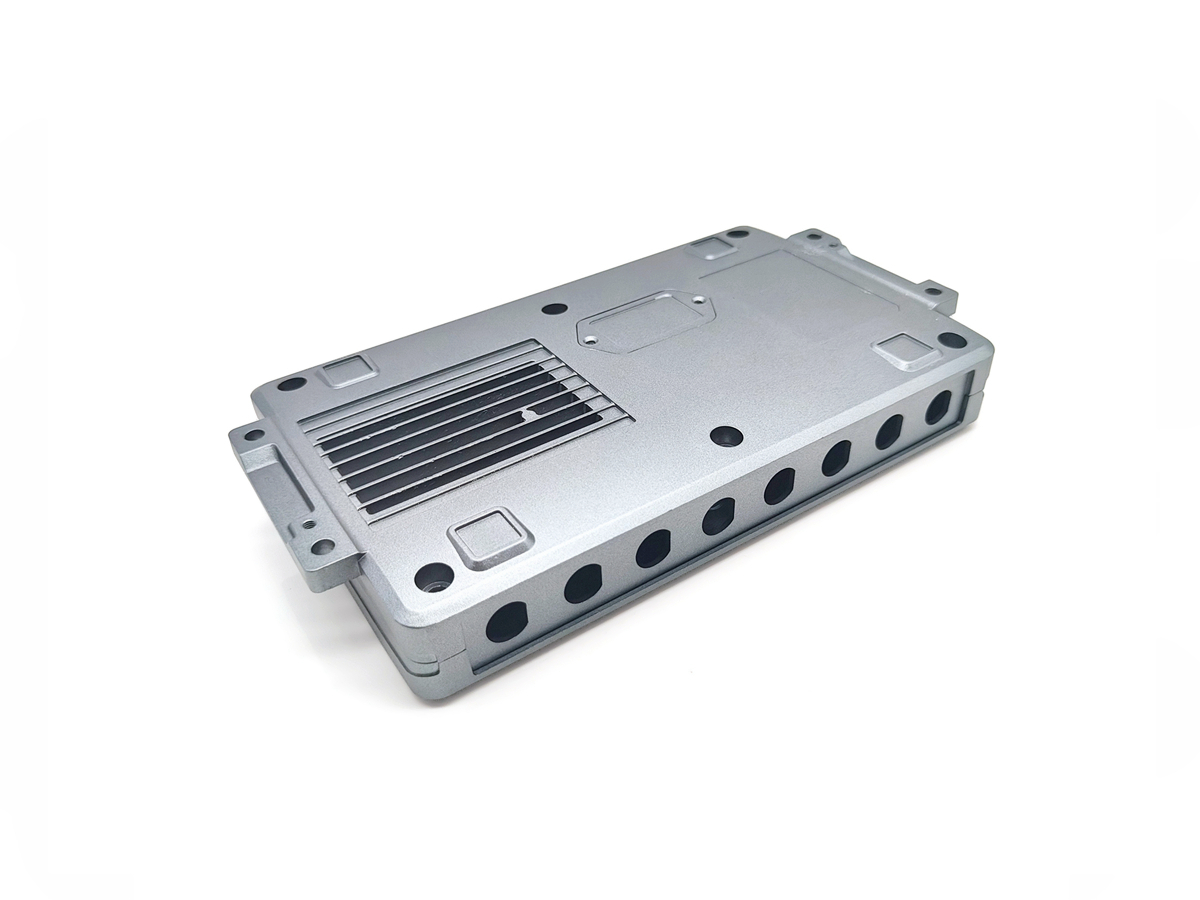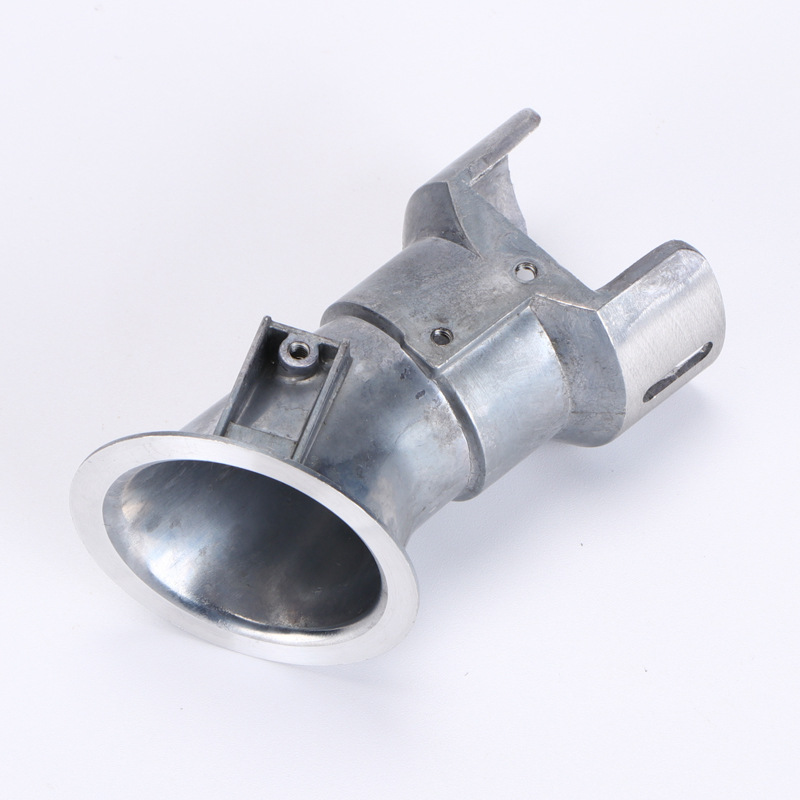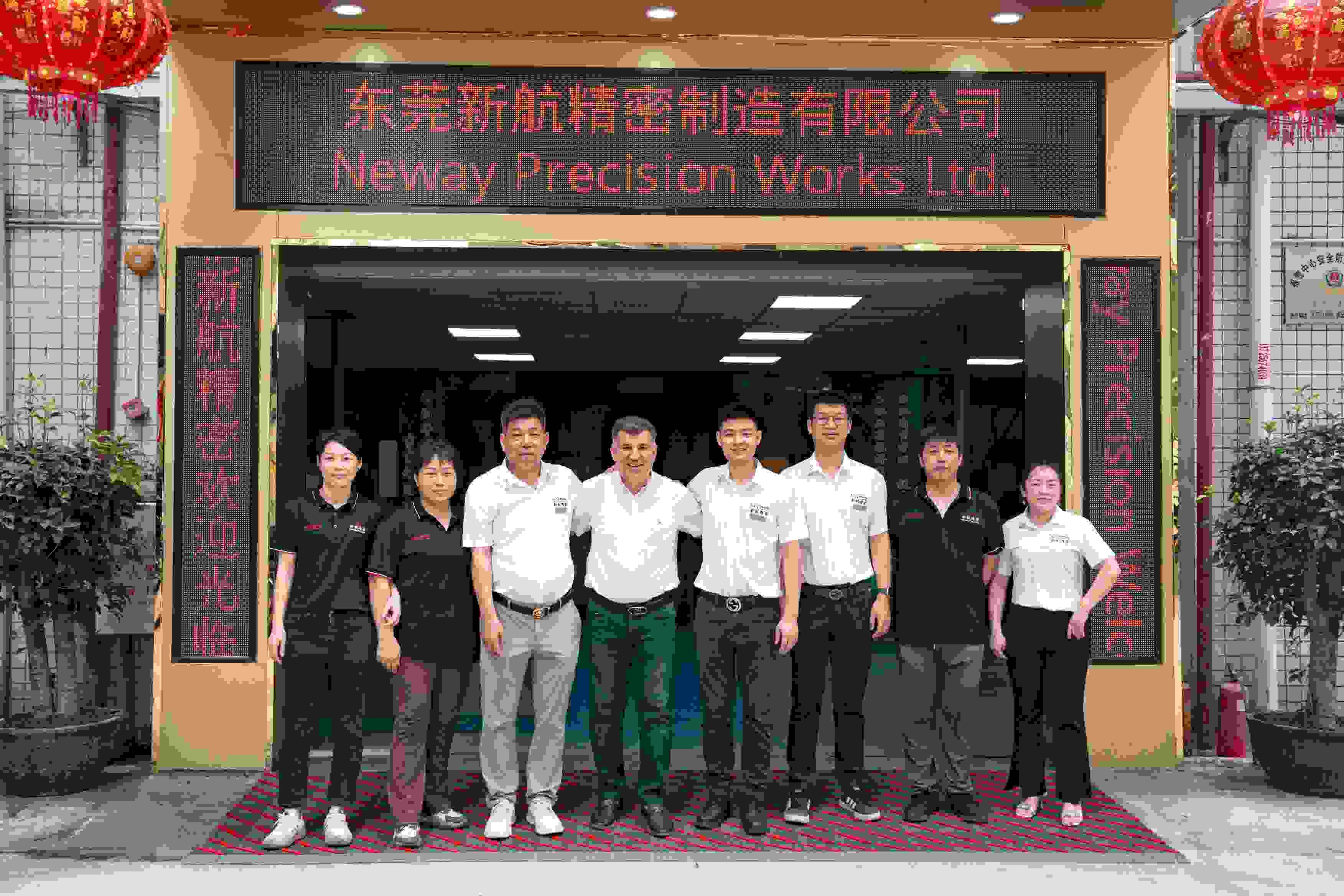AC4C
AC4C aluminum alloy is a high-performance material recognized for its superior thermal conductivity, excellent corrosion resistance, and exceptional weldability. It is especially favored in electronic, automotive, and LED applications where heat dissipation and structural precision are critical.
At Neway, we offer AC4C aluminum die casting solutions that combine optimized mold design, controlled solidification, and precise post-machining to meet demanding quality and functional requirements.
Key Characteristics of AC4C Aluminum Alloy
Property | Value |
|---|---|
Density | 2.67 g/cm³ |
Ultimate Tensile Strength | ~280 MPa (40,600 psi) |
Yield Strength | ~130 MPa (18,850 psi) |
Elongation at Break | ~8.0% |
Thermal Conductivity | ~130 W/m·K |
Coefficient of Thermal Expansion | ~21.5 µm/m·°C |
Brinell Hardness | ~65 HB |
Corrosion Resistance | Excellent |
Weldability | Excellent |
AC4C is classified under JIS H5302 standard and is widely used for applications requiring a balance of strength and thermal functionality, particularly in environments where surface treatment or joining is needed.
Chemical Composition of AC4C
Element | Percentage (%) |
|---|---|
Silicon (Si) | 6.5 – 8.0 |
Copper (Cu) | ≤ 0.20 |
Magnesium (Mg) | 0.25 – 0.45 |
Iron (Fe) | ≤ 0.35 |
Manganese (Mn) | ≤ 0.50 |
Zinc (Zn) | ≤ 0.10 |
Titanium (Ti) | ≤ 0.20 |
Aluminum (Al) | Balance |
With low copper and high silicon-magnesium content, AC4C provides excellent fluidity for thin-wall casting and improved bonding during welding or thermal joining processes.
Mechanical Properties of AC4C Aluminum Alloy
Property | Value (as-cast) |
|---|---|
Ultimate Tensile Strength | ~280 MPa (40,600 psi) |
Yield Strength (0.2% offset) | ~130 MPa (18,850 psi) |
Elongation at Break | ~8.0% |
Fatigue Strength (10⁸ cycles) | ~100 MPa (14,500 psi) |
Modulus of Elasticity | ~68 GPa |
Brinell Hardness | ~65 HB |
AC4C’s ductility and toughness make it suitable for applications that experience mechanical stress or require impact resistance, while also allowing complex shapes to be cast with tight dimensional control.
Benefits of Using AC4C in Die Casting
High Thermal Conductivity: Efficient heat dissipation makes it ideal for LED and electronics housings.
Excellent Weldability: Can be TIG or MIG welded with minimal risk of cracking, unlike many high-silicon alloys.
Superior Corrosion Resistance: Performs well in outdoor or marine environments, even without coating.
High Elongation: Suitable for structural parts requiring impact resistance or flexibility.
Dimensional Accuracy: Well-suited for detailed and complex geometries with thin sections.
Typical Applications of AC4C Die Cast Parts
AC4C is commonly selected for components that require a blend of strength, thermal management, and secondary processing flexibility:
Automotive: Engine brackets, powertrain covers, transmission casings
LED Lighting: Heat sinks, reflector housings, light engine bases
Electronics: Power supply enclosures, connectors, thermal interfaces
Consumer Appliances: Induction plates, structural housings
Energy Equipment: Heat management components in power converters or solar devices
Its mechanical resilience and excellent finishing response make it ideal for multifunctional parts requiring performance and visual appeal.
CNC Machining Considerations for AC4C
AC4C is easily machinable, offering minimal tool wear and consistent cutting response, especially after solidification control in die casting.
Machining Notes:
Tooling: Carbide tools are recommended; PCD can be used for high-volume precision jobs
Cutting Speed: 200–400 m/min; lower speeds extend tool life in precision surfaces
Feed Rate: 0.05–0.15 mm/rev; adjusted per feature and tool geometry
Coolants: Water-soluble or synthetic coolants to minimize thermal distortion
Surface Finish: Achievable Ra ≤ 1.6 µm for functional sealing or assembly faces
Our CNC machining process ensures flatness, roundness, and perpendicularity within ±0.05 mm tolerance bands.
Surface Treatments for AC4C Parts
AC4C’s chemistry supports a wide range of finishing operations, especially when enhanced corrosion protection or branding is needed:
Anodizing: Excellent for both Type II decorative and Type III hardcoat applications
Powder Coating: Adheres well with minimal pre-treatment required
Painting: Smooth surface enables premium cosmetic finishes
Tumbling: Used to achieve uniform matte surface before coating or assembly
All finishes are tested for adhesion, corrosion protection, and visual appearance in compliance with ASTM and ISO specifications.
Why Choose Neway for AC4C Die Casting?
Neway's full-service aluminum die casting capabilities include DFM-based design, thermal flow simulation, and SPC-monitored production. We support prototyping, low-volume, or mass production of AC4C parts with consistent dimensional integrity and performance assurance.
FAQs:
What are the key advantages of AC4C over A380 or A360?
Is AC4C suitable for high-performance heat dissipation components?
Can AC4C die cast parts be welded without cracking?
What surface finishes are most compatible with AC4C?
What industries commonly use AC4C aluminum components?


